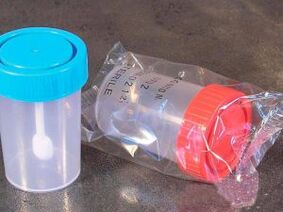Symptoms of internal parasites often seem incoherent and unexplainable. Although such thoughts are daunting, they are more common than many people believe. There are many creatures in the world-all kinds of worms, protozoa can parasitize almost all the internal organs of a person and cause symptoms of various diseases. You can find out in this article which tests are performed on parasites and when.
When do I need to be checked?

The most common is that the infection of parasitic diseases occurs when eating poorly washed vegetables and fruits, poorly processed meat, fish, raw water, and through household contact when using utensils and toys commonly used by children.
There are the following types of parasites:
- Protozoa (lamblia, amoeba, plasmodium).
- Parasitic arthropods (mites, pathogens of mode sores).
- Parasitic worms (worms).
The most common parasitic diseases are caused by worms (helminths), which occur in young children, pet owners and socially disadvantaged groups.
The main characteristic of parasites is that they are inconspicuous in the initial stages. They will not show up in any way for a long time after infection, and will cause obvious symptoms that are already in the advanced stage.
You can recognize the presence of internal parasites by the following manifestations:
- Bloating, gas, constipation, diarrhea, stomach pain, intestines.
- Appetite decreases or increases after eating.
- Lose weight without motivation.
- Itchy skin, incomprehensible rash, dermatitis, urticaria.
- Pale skin, increased fatigue, or diagnosis of anemia (the most common is iron deficiency).
- Overwork, sleep disorders (drowsiness, insomnia).
- Grinding teeth during sleep, coughing for a long time.
If these symptoms occur, you should consult a general practitioner and perform a parasite test.
What test can pass the parasite

There are many studies to determine whether parasites (protozoa, arthropods, worms) are present in the body.
Since the most common disease is helminthiasis, the best way to perform a parasite test is to perform a stool test.
In order to conduct a standard study, the patient will need to collect three separate stool samples from different areas of the same section into a sterile container and transport the biological material to the laboratory as soon as possible. The doctor’s laboratory assistant examines the obtained samples under a microscope and can identify live parasites and parasites in eggs.
Standard studies on the feces of worm eggs do not always provide much information. Due to the particularity of the life cycle of parasites, there may be dead worms or their fragments in the test sample, instead of eggs or adults, rather than eggs or adults, and cannot be used to diagnose diseases.
More useful is the extended stool analysis, which uses polymerase chain reaction. This technology can detect the DNA of the worm even if it is dead, in a dormant state, or only fragments of the organism have entered the material being studied.
In order to accurately tell whether there are parasites in the body, the test must be performed at least three times on different days. According to statistics, the accuracy of a single study is 50%, while the accuracy of the three studies has increased to 99%.
Another equally important analysis is the serological response-to determine the level of antiparasitic antibodies. They can recognize acute (IgM) and chronic or delayed worm invasion (IgG). Moreover, they can identify parasitic infections that are not found in feces.
Some worms live in the bile ducts and can also form cysts in the lungs, liver, and brain. They can be suspected by the corresponding clinical symptoms and detected by serological examination, X-ray, CT or MRI, and biopsy.
In order to diagnose parasitic skin diseases (sc sores, demodicosis, certain types of worms), scratches and skin biopsies, specific tests (iodine) and serological tests are used.
What tests should adults do for parasites?

Because adults strictly follow personal hygiene rules, adults are less likely to get helminthiasis, they rarely eat unwashed fruits and vegetables in the garden, and they have less contact with street animals during competitions. .
When certain non-specific complaints (gastric and intestinal discomfort, long-term skin itching, rash, weakness, fatigue, anemia) are given to all patients before admission, adults must be tested for helminthiasis. As part of preventive research for certain types of workers.
These people include employees in the food industry, people dealing with children (nanny and nanny in kindergartens, teachers, heads of sports departments). These people should definitely be tested for intestinal helminthiasis and assimiosis.
Hunters and farmers should be screened for trichinosis and nematodes on a regular basis; it is important to perform serological tests on fishermen to detect adriamycin. You can get more information from the therapist about what tests should be done in this situation.
What tests can transmit parasites to children

Every child should be fully diagnosed in order to find worms and effectively treat them before going to kindergarten and elementary school (on admission, after prolonged rest or sickness). In addition, in preschool institutions and schools, there are mandatory regular preventive inspections to detect worm infections and prevent their spread at an early stage.
To diagnose helminthiasis, children should perform routine analysis of stool and scrape from the perianal crease.
Scrap is considered to be the most effective and accurate method for diagnosing small bowel disease (a disease caused by pinworms). In this process, before going to the toilet and the perineal toilet, take out a special cotton swab, spatula or a small piece of scotch tape from the perianal folds, then stick it on a glass slide and check it under a microscope. In the presence of disease, the laboratory technician will find pin worm eggs in the test material.
The treatment of parasites is prescribed by physicians or pediatricians in difficult situations-by infectious disease specialists. For skin lesions (certain worms, with sores or helminthiasis), the dermatologist will choose the treatment method.
It is important that if you suspect that you have a parasitic disease, please do not delay contacting a specialist, because delays in treatment can cause complications for the patient himself and increase the risk of spreading the disease to others.



































